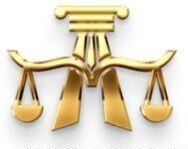Best Discrimination Lawyers in Nigeria
Share your needs with us, get contacted by law firms.
Free. Takes 2 min.
Or refine your search by selecting a city:
List of the best lawyers in Nigeria
About Discrimination Law in Nigeria
Discrimination in Nigeria is a crucial issue that affects many citizens across various aspects of life including employment, education, and access to services. Discrimination occurs when an individual or group is treated less favorably than others based on attributes such as race, gender, ethnicity, religion, disability, age, or other personal characteristics. Nigerian law aims to protect individuals from discrimination through a combination of constitutional rights, statutory provisions, and various international commitments. Understanding the legal framework is crucial for anyone experiencing discrimination or advocating for equity in Nigeria.
Why You May Need a Lawyer
You may need legal assistance in discrimination cases if you feel that you have been unfairly treated or denied rights due to personal attributes or characteristics. Common situations where legal help might be essential include:
- Experiencing unfair treatment at work based on gender or ethnicity.
- Denial of access to services or facilities due to disability or religion.
- Facing harassment or victimization due to personal identity.
- If an institution or employer fails to address a complaint of discrimination properly.
Legal advice or representation can help ensure your rights are protected and might involve pursuing legal action or negotiating settlements.
Local Laws Overview
The foundation of anti-discrimination law in Nigeria is based on multiple sources that collectively aim to prohibit unfair treatment. Key aspects include:
- The Nigerian Constitution (1999) provides for equality before the law and prohibits discrimination on the grounds of ethnicity, gender, disability, and other social status.
- The Labour Act regulates employment and seeks to safeguard employees from discrimination at the workplace.
- The Discrimination Against Persons with Disabilities (Prohibition) Act (2018) protects individuals with disabilities from discriminatory practices and promotes their social inclusion.
- International agreements and conventions such as the Convention on the Elimination of All Forms of Discrimination Against Women (CEDAW), which Nigeria is a party to, influence local laws and practices.
Frequently Asked Questions
What constitutes discrimination under Nigerian law?
Discrimination involves less favorable treatment of individuals or groups based on personal characteristics such as race, gender, or disability without legitimate justification.
Can I file a complaint if I face religious discrimination at work?
Yes, individuals facing religious discrimination are encouraged to file complaints with relevant bodies such as the Nigerian Human Rights Commission or seek legal counsel to explore court proceedings.
What should I do if a service provider discriminates against me?
Document the incident, gather evidence, and report the behavior to relevant oversight agencies, or consult a lawyer to evaluate potential legal actions.
Is there protection against discrimination for those with mental health issues?
Yes, the Discrimination Against Persons with Disabilities Act covers mental health as part of its provisions to protect against discrimination based on disabilities.
How does the law support women facing gender discrimination?
Through constitutional rights and international commitments like CEDAW, the law provides a legal framework for addressing gender discrimination and promoting gender equality.
Can I receive compensation if I prove a discrimination case?
If discrimination is proven in court, victims may be eligible for compensation, reinstatement to prior positions, or other remedies as deemed fit by the judiciary.
Where can I report discrimination other than the courts?
The National Human Rights Commission is a governmental body where individuals can report discrimination cases for investigation and mediation.
Are there timelines for filing discrimination complaints?
Timelines can vary depending on the type of discrimination and the legal pathway chosen. It’s advisable to seek legal advice promptly to safeguard your rights.
Does the law in Nigeria protect against indirect discrimination?
Yes, the law encompasses indirect discrimination, which occurs when policies or practices disproportionately disadvantage certain groups without justifiable reasons.
How can I prove discrimination in a legal setting?
Evidence collection such as witness statements, documentation, recorded communications, and any form of hostility or penalizing measures can help substantiate claims.
Additional Resources
There are several resources and organizations in Nigeria dedicated to addressing discrimination. Some helpful resources include:
- National Human Rights Commission: Offers support and advice on discrimination claims.
- Legal Aid Council of Nigeria: Provides access to legal assistance for those who cannot afford it.
- Women’s rights organizations and NGOs can offer guidance and resources specific to gender discrimination issues.
- Disability Rights Advocacy institutions for information and advocacy on disability-related discrimination issues.
Next Steps
If you need legal assistance in a discrimination case, start by gathering all pertinent information and evidence related to the discrimination you have faced. This includes noting down events as they occur, collecting any relevant documentation, and identifying potential witnesses.
Consult a qualified lawyer who specializes in discrimination law to guide you on your options. They can advise on the feasibility of your case, potential remedies, and the best course of action, whether it be through legal proceedings or other dispute resolution mechanisms.
Seek resources and support from local bodies engaged in human rights advocacy to understand your rights better and find avenues of support other than legal ones, such as counseling or community support groups.
Lawzana helps you find the best lawyers and law firms in Nigeria through a curated and pre-screened list of qualified legal professionals. Our platform offers rankings and detailed profiles of attorneys and law firms, allowing you to compare based on practice areas, including Discrimination, experience, and client feedback.
Each profile includes a description of the firm's areas of practice, client reviews, team members and partners, year of establishment, spoken languages, office locations, contact information, social media presence, and any published articles or resources. Most firms on our platform speak English and are experienced in both local and international legal matters.
Get a quote from top-rated law firms in Nigeria — quickly, securely, and without unnecessary hassle.
Disclaimer:
The information provided on this page is for general informational purposes only and does not constitute legal advice. While we strive to ensure the accuracy and relevance of the content, legal information may change over time, and interpretations of the law can vary. You should always consult with a qualified legal professional for advice specific to your situation.
We disclaim all liability for actions taken or not taken based on the content of this page. If you believe any information is incorrect or outdated, please contact us, and we will review and update it where appropriate.
Browse discrimination law firms by city in Nigeria
Refine your search by selecting a city.















